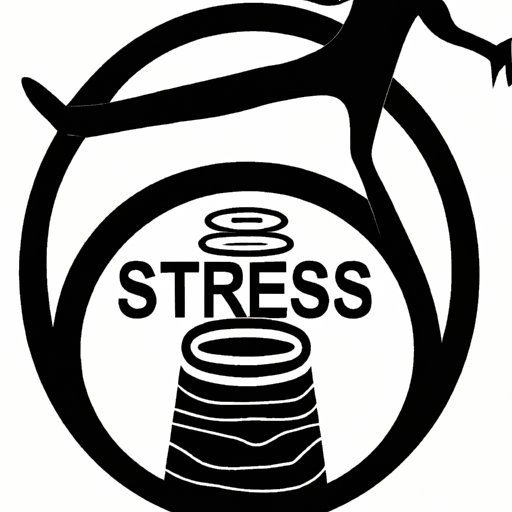I. Introduction
Most of us have experienced being dizzy or feeling like the objects around us are moving when they’re not. But have you ever felt like the world around you is in constant motion or spinning? If yes, then you may be experiencing vertigo. This sensation of spinning or motion can be uncomfortable and even debilitating. In this article, we’ll explore the various causes, symptoms, and natural remedies for vertigo so that you can better understand and overcome the condition.
II. Understanding Vertigo
Before we delve into the remedies for vertigo, let’s look at the condition itself.
A. Causes of Vertigo
Vertigo can be caused by numerous factors, including:
- Inner ear problems
- Migraines or headaches
- Certain medications
- Blood pressure fluctuations
- Anxiety or stress
- Infections or disorders
It’s important to identify the underlying cause of vertigo to treat it effectively.
B. Types of Vertigo
There are two main types of vertigo: peripheral and central. Peripheral vertigo is caused by an imbalance or problem in the inner ear, while central vertigo is caused by a malfunction in the brain.
C. Signs and Symptoms of Vertigo
The most common symptoms of vertigo are:
- Dizziness
- Nausea or vomiting
- Sweating
- Ringing in the ears
- Headache
- Feeling disorientated
III. Home Remedies to Treat Vertigo Naturally
Vertigo can be treated with natural remedies and changes to your lifestyle.
A. Treatment Methods at Home
While seeking medical advice if you have vertigo is essential, there are treatment methods you can try at home. If your symptoms persist for a more extended period, always check with your doctor. Some methods are:
- Rest and recuperation for a few hours
- Avoid sudden movements
- Hydrate regularly
- Manage stress
- Avoid alcohol and tobacco
B. 10 Effective Home Remedies
Try these effective home remedies for vertigo at your convenience:
- Ginger and Lemon
- Massage Therapy
- Adequate sleep and rest
- Deep Breathing Exercises
- Yoga Poses
- Hydration
- Aromatherapy
- Almonds and Watermelon Seeds
- Applying heat or cold
- Dietary Supplements
If you’re taking any prescription medication, please consult a medical professional before adopting any of these remedies.
IV. Exercises to Cure Vertigo Symptoms
A. Simple Exercises for Vertigo
Exercises can help improve the imbalance that causes vertigo in the inner ear and improve your balance. One exercise to try is the Brandt-Daroff exercise; it involves repetitive actions that reduce the sensation of vertigo.
B. 5 Exercises to Cure Vertigo Symptoms
Following are five exercises that can be useful in reducing vertigo:
- Brandt-Daroff exercise
- Epley maneuver
- Gaze stabilization exercises
- Balancing exercises
- Walking exercises
V. The Role of Diet in Treating Vertigo
A. Foods to Eat and Avoid
A balanced diet is essential in dealing with vertigo. You might want to avoid certain foods, including caffeine, salt, and alcohol that affect blood circulation or exacerbate existing vertigo symptoms. Include a diet packed with Vitamin D, Magnesium and Vitamin B6 rich foods that can help reduce or prevent vertigo.
B. The Connection Between Diet and Vertigo
Diet can impact vertigo symptoms in different ways. For example, caffeine induces dehydration, which can result in dizziness, and salt can alter the body’s fluid balance. Foods that contain plenty of vitamins and minerals can help strengthen the body and immune system, reducing the risk of vertigo.
VI. Techniques to Alleviate Vertigo Symptoms Quickly
When you’re experiencing vertigo, relief is what you seek the most. Below are a few immediate techniques to try:
A. Ways to Alleviate Symptoms Quickly
- Sit still for a few minutes
- Breathe in and out slowly
- Never focus on the spinning sensation
- Gaze stabilizing exercises
- Lie down and rest
B. 5 Proven Techniques
- Deep Breathing
- Effective Stress Management
- Acupuncture
- Yoga or Tai Chi
- Vestibular Rehabilitation

VII. Understanding the Connection Between Vertigo and Stress
A. How Stress Affects Vertigo
Even though vertigo triggers can be due to physical factors, stress and anxiety can equally worsen the symptoms of vertigo. An increase in stress hormones can lead to an increase in blood pressure, which may cause dizziness, disrupting the inner ear’s functions. Thus it is important to manage stress.
B. Managing Vertigo through Stress Management
Below are some of the most effective stress-management techniques to manage vertigo:
- Meditation
- Therapy Sessions
- Yoga or Tai Chi
- Breathing Techniques
- Visualization and Positive Self-talk
VIII. Medications Prescribed for Vertigo and Their Side Effects
A. Top Medications Prescribed for Vertigo
Doctors may prescribe medications to manage vertigo symptoms, depending on the cause and severity of the condition. Some commonly prescribed medications include:
- Meclizine
- Antivert
- Diazepam (Valium)
- Promethazine (Phenergan)
B. Side Effects and Risks of Using Vertigo Medications
All medications have some side effects, and the same is applicable for vertigo medications. It can result in drowsiness, dry mouth, blurred vision, and fatigue. Individuals with underlying conditions such as glaucoma and liver disease must avoid those medications.
IX. Conclusion
A. Recap of Key Points
While vertigo can often make you feel unsteady or dizzy, there are remedies available to help alleviate the symptoms. Homeopathy, exercises, stress management, dietary changes, and medication are just a few ways you can ease the discomfort and eliminate vertigo’s symptoms.
B. Encouragement and Advice in Overcoming Vertigo
Regardless of what’s causing your vertigo, there are methods to manage and relieve its symptoms. By following a good home routine, keeping an eye on your diet, and collaborating with your healthcare provider, you can effectively treat your vertigo, avoid dizziness, and get back to your regular routine.
